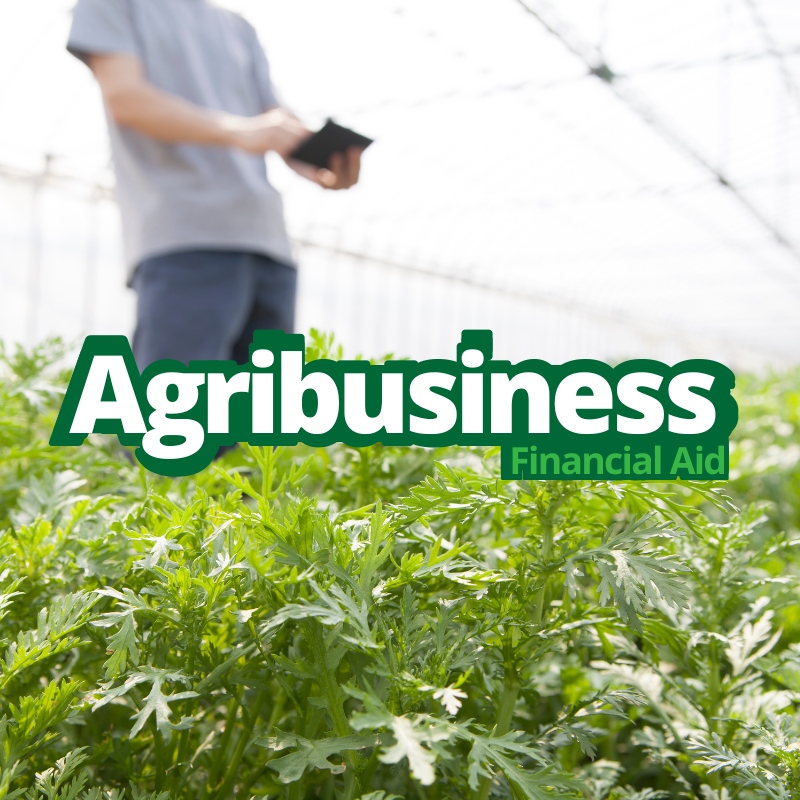No products in the cart.
Filipino, Filipino Farmers, Financial
Profitable Agribusiness: Unlocking Financial Aid for Growth
AGRIBUSINESS IS ONE OF THE IMPORTANT BUSINESSES
Agribusiness is a crucial sector that drives economic growth, especially in developing countries. Farmers, processors, distributors, and consumers form a system that produces, processes, markets, and distributes agricultural goods. To transform agriculture into a thriving industry, investments in farming technologies, training, supply chains, infrastructure, research, and property rights are essential.
Mins to Read: 7-10 mins
Age Bracket: 18 – 60

Bogle’s concept was straightforward: instead of striving to outperform the index, a fund should emulate it, targeting greater long-term returns while incurring lower expenses. It’s easy to forget that the method was initially novel since it has been widely used. However, other companies had previously launched inexpensive products that tracked stock market indexes, these were designed for pension funds and insurers rather than regular consumers. So, instead of just looking for the small things in your business, always aim for something big.
What is Agribusiness?
Agribusiness is the commercialization of agricultural goods. It combines agriculture and business, covering all enterprises that interact with farmers, whether through products, services, or commodities. These include seeds, machinery, electricity, fertilizers, loans, insurance, transportation, and more.
Agribusiness is vital to rural employment and GDP growth. Since many agribusinesses operate in rural areas, expansion can slow urban migration, reduce poverty, and boost foreign currency earnings.
In nations like the Philippines, agribusiness covers four key sectors:
- Input Market – Seeds, fertilizers, and equipment
- Agricultural Manufacturing – Farm production and processing
- Product Sector – Storage, marketing, and retail
- Service Sector – Finance, investment, and technical support
A strong agribusiness sector ensures a stable food supply, economic growth, and a better quality of life for farmers.
Financial Challenges in Agribusiness
Despite its importance, agribusiness faces financial hurdles, including:
- Lack of capital and investment – Many farmers struggle to secure loans.
- Inadequate infrastructure – Poor roads and storage facilities affect efficiency.
- Market access issues – Farmers often lack direct access to buyers.
- Supply chain disruptions – Issues like climate change, pests, and disease outbreaks impact production.
Financial Aid for Agribusiness Growth
Governments and financial institutions provide funding solutions to support agribusiness:
Government Grants & Subsidies
- The Philippine Department of Agriculture offers various programs, including the Rice Competitiveness Enhancement Fund (RCEF) and Agribusiness Loan Assistance.
- The Agricultural Credit Policy Council (ACPC) provides zero-interest loans to farmers.
Bank Loans & Microfinance
- Banks like Land Bank of the Philippines and Development Bank of the Philippines offer agribusiness loans.
- Microfinance institutions provide small-scale loans to rural farmers.
Private Investments & Partnerships
- Public-private partnerships (PPP) help develop infrastructure and technology.
- Agribusiness startups can seek venture capital funding.
International Support & NGOs
- The World Bank, IFAD, and FAO fund agricultural projects.
- NGOs support farmers through training and financial literacy programs.
Agribusiness in the Philippines: Current Status & Challenges
The Philippine agribusiness sector faces challenges due to COVID-19, African Swine Fever (ASF), and global conflicts like the Ukraine-Russia war. These events have led to supply chain disruptions, increased food prices, and economic instability.
The Department of Agriculture (DA) has implemented policies such as:
- Food security programs – Ensuring stable food supply and prices
- ASF vaccination & biosecurity measures – Protecting the livestock industry
- Rice Tariffication Law (RTL) – Reducing rice prices and supporting farmers
- Increased importation – Addressing local production shortages
The Future of Agribusiness
To sustain agribusiness growth, the government and private sector must work together to:
- Improve access to financial aid for farmers
- Enhance infrastructure for better logistics and storage
- Develop agricultural innovations and mechanization
- Strengthen value chain linkages between producers, processors, and markets
Agribusiness is the key to food security, economic stability, and sustainable rural development. With proper financial aid and policy support, the sector can thrive and contribute significantly to national progress.
Keeping the Balance
Despite its limitations, the DA will continue to fight for the greater welfare of Filipino farmers and fishermen until the agricultural sector receives its share of public money to realize the ideal of a food-independent nation.
Even if the farmer cannot expand farmland and food production remains an issue, the DA will continue to apply other effective strategies to ensure that every Filipino has access to food.
The OANDA Reform Agenda, the brainchild of Secretary Dar, has kept the agricultural sector alive and resilient for the last three years, despite the many obstacles. Built on four pillars: Consolidation, Modernization, Industrialization, and Professionalization, the ultimate objective of the OANDA Reform Agenda is to modernize and industrialize Philippine agriculture and make it a significant contributor to the country’s gross domestic product.
“It is a revolutionary plan that capitalizes on technology, creativity, and the desire to make our farmers and fishermen rich in the end,” said Secretary Dar.
Once entirely accepted and implemented, the OANDA Reform Agenda pledges to elevate the Philippines to agricultural parity with other ASEAN nations.
In its few years of implementation, the OANDA Reform Agenda has spawned achievements and innovations, leaving its mark on the Philippine agricultural sector. These include, among others, trade and export development, agri-industrial business corridors, youth engagement in agriculture, easy and affordable access to agri-financing for farmers and fishers, private sector participation in agriculture as “big brothers,” mechanization and infrastructure investments, and agriculture digitalization.
“What works, for the time being, is our intentional togetherness to strive toward the objective despite the many obstacles. We displayed it throughout this perfect storm: the COVID-19 pandemic, the African swine fever epidemic, the birth pangs of RTL, and now the Ukraine catastrophe. I promise you that the DA has been trying to assist our farmers, fishermen, and the rest of our countrymen.
Loans Programs for Agribusiness in the Philippines

SURE COVID-19 Loan Program
The Agricultural Credit Policy Council (ACPC) in the Philippine Department of Agriculture granted loans totaling Php246.3 million under the SURE COVID-19 finance program’s Expanded SURE Aid and Recovery Project in response to COVID-19.This initiative aims to promote food security in the nation, and it is therefore included in the Plant, Plant, Plant initiative.
How to apply?
For marginalized farmers and fisherfolks:
The Municipal Agriculture Office (MAO) will select affected individuals and program participants. After that those receiving aid must fall under the socially disadvantaged category and be included in the Registry System for Basic Sectors in Agriculture (RSBA). The DA-Regional Field Office(DA-RFO) will verify the list of acquired people.
Requirements:
- 1 Government-issued ID with picture.
- 1 pc of 1×1 picture
- Loan application and a promissory note
Farmers and fishermen who are eligible and registered in the Registry System for Basic Sectors in Agriculture (RSBSA) may borrow up to Php25,000 with no collateral and interest, to be repaid over ten(10) years.
For agri-fishery micro and small enterprises:
Who can Avail of the Program?
Agri-Fishery small business —
- Registered in CDA/SEC/DOLE and other registration in other agencies
- One year active in the business
- Capacity to build projects
- Has agri-fishery products in their enterprise.
The business can be solo, partnered, corporation, or association
Requirements:
- Letter of Intent with details of your project
- Documents to register
- Financial Statement
Loans for working capital are up to Php10 million for agri-fishery-oriented MSEs. So that afflicted MSEs may keep running throughout the epidemic, this loan has a 5-year repayment period with 0% interest.
Emails sent to pdd@acpc.gov.ph or surecovid.19@gmail.com will be processed as loan applications under the program. Don’t forget to include your company’s name, contact person’s name, phone number, and province in the email with your submission of the required papers.
Kapital Access for Young Agripreneurs (KAYA)
KAYA program is a component of the Department of Agriculture’s youth initiatives. It would assist fund the capital needs of start-ups or existing agribusiness ventures by young entrepreneurs and agri-fishery graduates.
The program also involves capacity-building training delivered by state universities and colleges, government organizations, and Business Development Services (BDS) service providers. Borrowers who qualify will get assistance and training in creative finance, company development, marketing, and product packaging.
How to Apply?
Who can Avail of the program?
- Agripeneurs with age 18-30 years old
- Graduate formal or informal in studying Agri-fishery from–
- College or University
- Department of Agriculture
- Agricultural Training Institute (ATI) and TESDA
- High school with the course of Agri-fishery
Requirements
- 1 Government ID with a picture
- Loan Application Form
- Simple Business Plan
To apply for the loan, visit the closest government financial institutions (GFIs) or non-government financial institutions (NGFIs), such as rural banks, cooperative banks, non-governmental organizations (NGOs), and other private financial institutions. A zero-interest loan of up to Php500,000 is available to borrowers for five years.
Agri-Negosyo Program (ANYO)
The ANYO loan program provides agri-fishery MSEs with loans that may be used to finance their capital needs, operations, or fixed asset purchase (facilities construction, equipment, machinery).
Similar to KAYA, it offers capacity development so that borrowers may obtain technical support and training to enhance their businesses.
How to Apply?
Who can Avail of the Program?
- Solo owner of a small business with regards to agri-fishery
Requirements
- Documents needed to submit by the loaners to the bank or in other partners of DA
The program consists of two categories:
- The Micro Agri-Negosyo Loan program allows borrowers to borrow up to Php300,000 interest-free for five years.
- Small Agri-Negosyo Loan Facility: Borrowers may get a loan of up to Php15 million with no interest and a five-year repayment period.
Agrarian Production Credit Program (APCP)
The APCP is a collaboration between the Department of Agrarian Reform (DAR), the LandBank of the Philippines (LANDBANK), and the Department of Agriculture.
Above all, the program is designed for Agrarian Reform Beneficiaries (ARBs) whose organizations are ineligible for LANDBANK financing. It seeks to create sustainable agricultural production and raise the incomes of ARBs and their families. This is done via the provision of finance and help with capacity development.
How to Apply?
Who can Avail of the Program?
- Agrarian Reform Beneficiary Organization
- The farmer that is a member of Agrarian Reform that is a beneficiary, or there is one family member of it
- Other lending banks such as Rural Bank, Coop, and other NGOs approved by ARB are not part of ARBO.
Qualification of Project
- Agriculture and Fishery Production
- Agri-enterprise and livelihood projects such as trading and manufacturing.
Interest rate
- Short-term loans: 8.5% every year
- Long-term loans: 9.5% every year
Collateral Requirements
- Assigned promissory note based on collateral
- Assigned insurance guarantee claims of deposit
- Chattel Mortgage or contract of lease
FAQs
What are the events that affect Agribusiness in the Philippines?
- Covid-19
- African Swine Fever
- Rice Tariffs Law
- Ukraine and Russia War
These are the events that affect our Agribusiness here in the Philippines, Nationwide.
What are the Loans/Programs that the Farmers can Apply to?
There are a few programs/loans in the Philippines for farmers’. Some of which are NGOs.
- SURE COVID-19 Loan Program
- Kapital Access for Young Agripreneurs (KAYA)
- Agri-Negosyo Program (ANYO)
- Agrarian Production Credit Program (APCP)
MUST-READ AND SHARE!
2023 Your Practical Wedding Guide
Your Ultimate Access to Kuwait Directories in this COVID-19 Crisis
Investments and Finance Ultimate Guide
OFW FINANCE – Money News Update that you need to read (Table of Contents)
A Devotional for having a Grateful Heart
Stock Investment A Beginner’s Guide
How To Save Money Amidst Inflation
Philippines Best Banks with High-Yield Savings Return
Essentials Before Applying For a Credit Card
Credit Card Starter Guide for Beginners
If you like this article please share and love my page DIARYNIGRACIA PAGE Questions, suggestions send me at diarynigracia @ gmail (dot) com
You may also follow my Instagram account featuring microliterature #microlit. For more of my artworks, visit DIARYNIGRACIA INSTAGRAM



Peace and love to you.